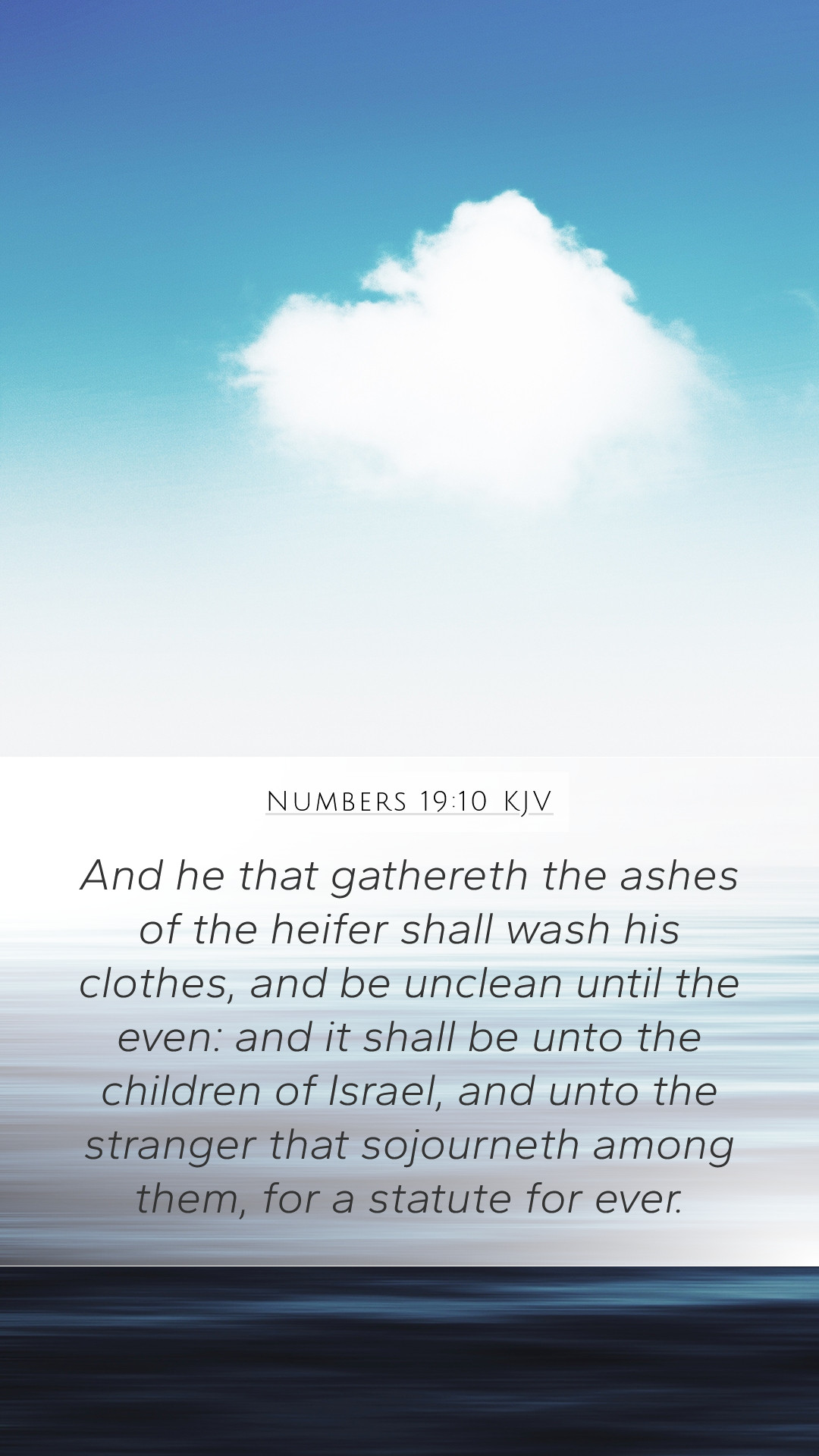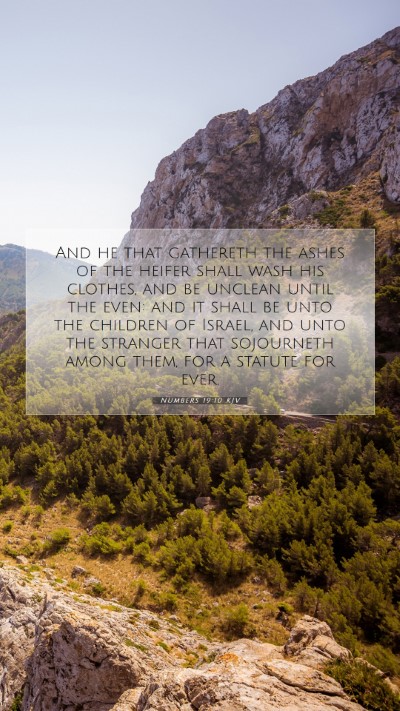Understanding Numbers 19:10
In Numbers 19:10, the scripture speaks to the significance of ritual purity within the Israelite community, specifically referring to the handling of the ashes of the red heifer for purification purposes. This verse serves as an important component in understanding the broader context of ceremonial laws presented in the Old Testament.
Bible Verse Explanation
This verse reads: "And he that gathereth the ashes of the heifer shall wash his clothes, and be unclean until the even: and it shall be unto the children of Israel, and unto the stranger that sojourneth among them, for a statute forever." The verse emphasizes both the practical and spiritual implications of handling sacred items, illustrating the deep connection between obedience to God's laws and the community's holiness.
Bible Verse Commentary
- Matthew Henry: Henry highlights the importance of thoroughness in obedience to divine commands. He observes that gathering the ashes was both a physical and symbolic act of maintaining purity and cleanliness in the covenant community. This act reflects the necessity of understanding our spiritual status before God.
- Albert Barnes: Barnes elaborates on the ceremonial aspects, pointing out that the instruction demonstrates the seriousness with which God regards purity among His people. The requirement of washing clothes signifies a transition from the sacred back to the common and underscores the psychological and physical dimensions of ritual cleanliness.
- Adam Clarke: Clarke emphasizes the perpetual nature of this statute, noting its relevance for both Israelites and foreigners among them. He suggests that this inclusivity indicates God's intention for all who reside within His covenant community to adhere to His laws, thus unifying diverse groups under the umbrella of divine order.
Insights and Interpretation
To fully grasp the meaning of this verse, it is essential to consider the cultural and historical context of the Israelites. The ashes of the red heifer are integral in the process of purification from dead bodies, a significant concern in ancient Israel, where ritual purity was crucial to community life.
This commandment depicts a broader biblical theme: the significance of holiness. The act of washing clothes signifies a change of state; one moves from engaging with death (in terms of the ashes which symbolized death) back to a state of purity. Thus, Numbers 19:10 serves as a spiritual reminder of the need for continual purification and readiness to approach God.
Application of the Verse
The implications of Numbers 19:10 extend beyond the cultural practices of ancient Israel; they invite modern believers to reflect on the meaning of cleanliness and purification in their own lives. This can manifest as spiritual introspection, recognizing areas needing grace and cleansing, and striving to maintain purity in one’s conduct and relationships.
Additional Bible Cross References
- Leviticus 11:44-45: Emphasizes the call for holiness as God is holy.
- Hebrews 9:13-14: Relates to the purification processes addressed in the Old Testament and their significance in light of Christ's sacrifice.
- 1 Peter 1:15-16: Calls on believers to be holy in all their conduct, reflecting the original call found in Leviticus.
Conclusion
The exploration of Numbers 19:10 reveals layers of meaning through various commentaries and interpretations. This verse not only conveys a command about physical purity but also serves as a profound reminder of God’s holiness and the continual call to maintain purity in our lives. For those engaging in Bible study—whether in groups or individually—this verse can enrich one's understanding of how ancient practices inform modern faith. It encourages seekers of Bible verse meanings and Bible verse interpretations to consider the enduring significance of divine statutes and the universal call to holiness.


